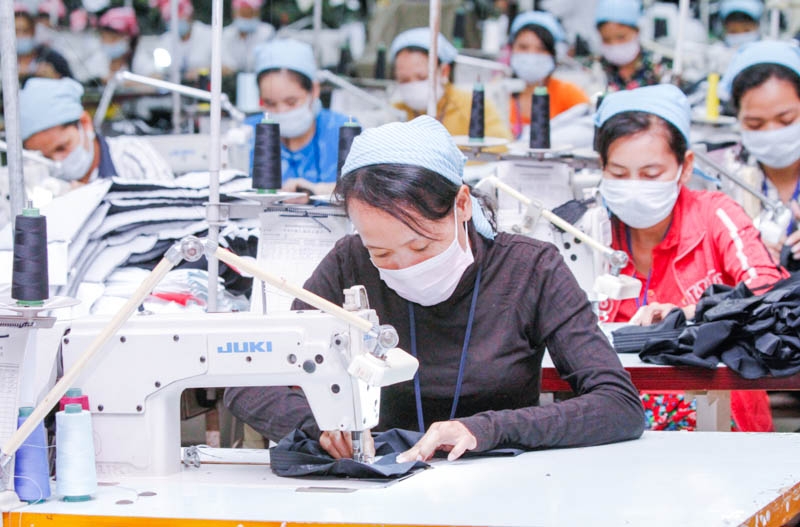Cambodia: PM: Economy is resilient
The Cambodian economy continues to be resilient in the midst of global uncertainty, with a healthy GDP growth of seven percent, and with further prospects for improvement, said Prime Minister Hun Sen in his Khmer New Year address to the nation yesterday.
“Despite all the challenges – both internal and external – our economy has done well with low inflation, good growth and a stable exchange rate for the riel,” said Mr. Hun Sen.
“Our per capita income increased from $1,215 in 2015 to $1,300 in 2016 while our international trade keeps increasing year-on-year despite the global economic downturn,” he added.
Mr. Hun Sen said the country’s seven percent GDP growth was backed by the growth in the construction, tourism, trading, services and agricultural sectors.
“The country’s political stability depends on a healthy economy and I am grateful to the people for supporting the government’s efforts in maintaining social stability and peace,” added the premier.
The prime minister said the garment and footwear sector was still one of the pillars for the country’s economic growth.
Last year, Mr. Hun Sen said, there were 1,500 garment and footwear factories in the country which employed more than one million workers.
“This proves that local and foreign investors have trust and confidence in the government. This in turn translates into jobs for Cambodians,” he said.
On Monday, at the closing ceremony of the annual meeting of the Ministry of Agriculture, Forestry and Fisheries at the Peace Palace, Mr. Hun Sen urged more to be done to help the country’s beleaguered rice sector.
Mr. Hun Sen called on both the public and private sectors to work together to develop new high-yielding rice varieties that are also able to survive extreme climatic events.
“We must be able to develop our own rice-seed varieties that suit climate patterns here in Cambodia and to meet current market demand,” he said.
Mr. Hun Sen repeated that call in his New Year’s address.
“With new high-yielding rice varieties and favorable weather, Cambodia could produce some 10 million [metric] tons of paddy rice a year which we can export to new markets,” he said.
According to the prime minister, last year, the government had improved the country’s irrigation system to provide water to about three million hectares of land planted with rice.
In the first quarter of last year, a severe drought affected rice production and through the year rice millers had been complaining of the flow of low-grade cheaper rice into the country from Vietnam.
Commenting on the power sector, Mr. Hun Sen said energy generated from hydroelectric dams and coal-powered plants increased by about 20 percent in 2016 compared with 2015.
“This has enabled us to reduce our electricity imports from neighboring countries. Electricity from overseas fell by about 25 percent in 2016 compared with the previous year. This year’s imports are expected to fall further by 20 percent compared with 2016,” he said.
Mr. Hun Sen pointed out that among 2.16 million consumers across the country, close to 1.86 million or about 86 percent of them can now access electricity from the national grid.
“There are 14,073 villages nationwide and by 2020, the government expects to install electricity lines in all of them,” he said.
According to the Asian Development Bank (ADB), Cambodia’s gross domestic product is expected to increase by 7.1 percent in 2017 and 2018, slightly higher than the estimate of 7.0 percent last year.
The ADB’s Asian Development Outlook 2017 stated the economy is expected to remain strong over the next two years, driven by solid garment and footwear exports, construction and real estate activities, rising government expenditure and a moderate recovery in agricultural production.
Source: http://www.khmertimeskh.com/news/37502/pm–economy-is-resilient/


 English
English




